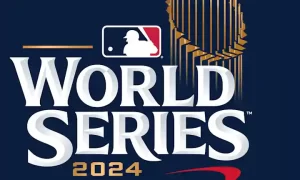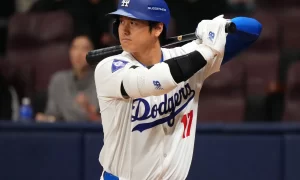Small Market, Big Player, Bigger Contract: Dealing with Baseball’s Toughest Contract Dilema

I’m not going to write about how good a game Out of the Park Baseball is. If you don’t have it already, you’re just wrong. You’re missing out and you should get your act together.
If you want to read what we at OTBB think of OOTP, you can read our 2014 review here, 2015 review here, 2016 review here, proof that our editor Ari is smarter than Ben Cherington here, and a blow by blow of the sort of 1871 MLB draft here.
Instead of reviewing the game, I’m just going to talk about a decision I’ve been pondering about for the last few days that only OOTP could bring into my life.
My challenge was to fix the 2017 Oakland A’s. I like starting with crappy teams and seeing if I can improve them, usually radically changing them in the process, before my real world GM counter part. The A’s are a particular challenge because they are crappy and very poor. I couldn’t just go full AJ Preller and buy a bunch of veterans to get wins now, I had to be more savvy than that.
I was feeling pretty good about myself early in my first season in charge. I’d gone out and made big trades for guys like Miguel Sano, Aaron Judge, and Javier Baez. I was certain my 2017 A’s were going to be much better than the real thing.
They weren’t. I guess I’d forgotten that all the guys I traded for were pretty young, good because they were inexpensive, but bad because they were more potential than reality. I finished with 59 wins and still had a long way to go.
Things started turning around quickly, though, when I figured out you could have another team retain part or all of the salary of a player you were acquiring from them. Of course, I knew this was a feature of the real sport, but it’s new to OOTP 18, and I took real advantage immediately going out to get more expensive players like Luke Gregorson, Mark Melancon, Chris Archer, and the piece-de-resistance, Mike Trout.
Yes, Mike Trout. I traded an arm and a leg for him but it was totally worth it. In his two and a half seasons with the Athletics, my version of Trout lead the league in WAR twice, won an MVP award, hit more than 45 homers twice, and led my teams to 103 and 98 win seasons- during both of which we got swept in the ALDS but that’s not on Mike.
The best part? I got the Angels to kick in all but $11 million a year of his salary, giving me the AL’s best player at the price of a very mediocre one. This was crucial for my small market club, especially as guys like Archer, Sano, Judge, and Baez started to hit their arbitration years and started costing me lots more money.
But now, I have a big problem. Trout is a free agent, and he wants like $35 million a year for 8 years to sign back with me. I don’t know what to do.
Usually, as you can see in my 2014 review, I am loath to give a player more than 3 years on a contract under any circumstances. I think that gives me an advantage over teams who are severely limited by large, immovable contracts for old, bad players. But if anyone seems like they should be the exception, it’s this virtual version of Trout. He’s never been hurt; he is still only 29 years old; he’s been amazing, and my team needs him badly.
If I was the Yankees, Dodgers, Cubs, or even a mid-market team like the Angels or Astros, I think I’d just bite the bullet and give him what he wants. But with the A’s, I feel like I just don’t have the flexibility.
Maybe I should have traded him mid-season but I had a big lead in the division and was en route to the best record in the AL, you don’t just get rid of your best player in the middle of a season like that. I decided to go for it and it didn’t work.
Perhaps I can find a guide in the real world. Are there examples of small-ish market teams faced with the impending departure of a start? Yes, of course.
The Rockies resigned Todd Helton but traded Matt Holliday.
The Twins gave a monster deal to Joe Mauer.
The Reds gave an even bigger deal to Joey Votto.
The Cardinals let Albert Pujols walk.
The Rays traded David Price.
Even my very own A’s let Jason Giambi go back in the day.
Teams with tight budgets that gave very large long-term contracts to departing players probably later regretted it. However, it is not the case that those teams did particularly well once they let those players leave. Sort of seems like I’m damned if I do, damned if I don’t.
Thanks OOTP!
-Max Frankel
















